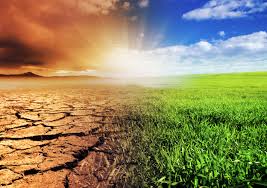The growing cost of climate change
The world GDP would be 37 per cent higher today had no global warming occurred between 1960 and 2019, says a new working paper by economists at the US’s National Bureau of Economic Research (NBER). The research, which went online this week, takes a more holistic approach than the methods adopted by studies that aggregate countrywide impacts of climate change. By linking the global with the local, the authors argue that the economic costs of a hotter planet could be six times more than that suggested by previous estimates. This follows another research paper, published last month in the journal Nature, which concluded that average incomes will fall by almost a fifth in the next 26 years compared to what they would have been without climate change. Both papers are unequivocal that the costs of transition from fossil fuels, though considerable, pale in comparison to the costs imposed by global warming. They join the dots between the impacts of heat waves, floods, storms and other fallouts of climate change that impair people’s health, reduce productivity and affect livelihoods.
Some regions are likely to get hit more than others. Poorly understood ecosystems like drylands, for example. A new report of the UN Convention on Combating Desertification, released on Tuesday, has flagged the fallouts of climate change on rangelands — these include desert shrublands, mountain pastures, tundra and plateaus. More than 50 per cent of these ecosystems have degraded, according to the report. These biospheres are recognised as vulnerable in most parts of the world and their role as carbon sinks is acknowledged. However, rangelands do not receive the same attention as forests in environmental conservation discourses. In India, for instance, it’s only in the past two decades that policymakers have begun to recognise the socio-ecological role of pastoralists, who depend on these ecosystems. Protecting pastoralism as a way of life while integrating communities such as Maldharis, Van Gujjars and Rabaris in the modern economy remains a critical developmental challenge.
Global climate policy has, so far, rightly concentrated on mitigating climate change. In recent years, there have been feeble attempts to help deal with the ravages of floods, storms, droughts and other climate-related catastrophes. However, recent studies, whether on the macro-level by the NBER economists or the UN report on desertification, underline the need for building people’s resilience against climate change — protecting them against heat waves, floods and landslides, drought-proofing agriculture and strengthening healthcare facilities. Adaptation continues to be underfunded, despite the growing awareness of the need for it. Deliberations for a new climate funding paradigm slated for the next CoP in Azerbaijan’s capital Baku will have to take this imperative into account.
